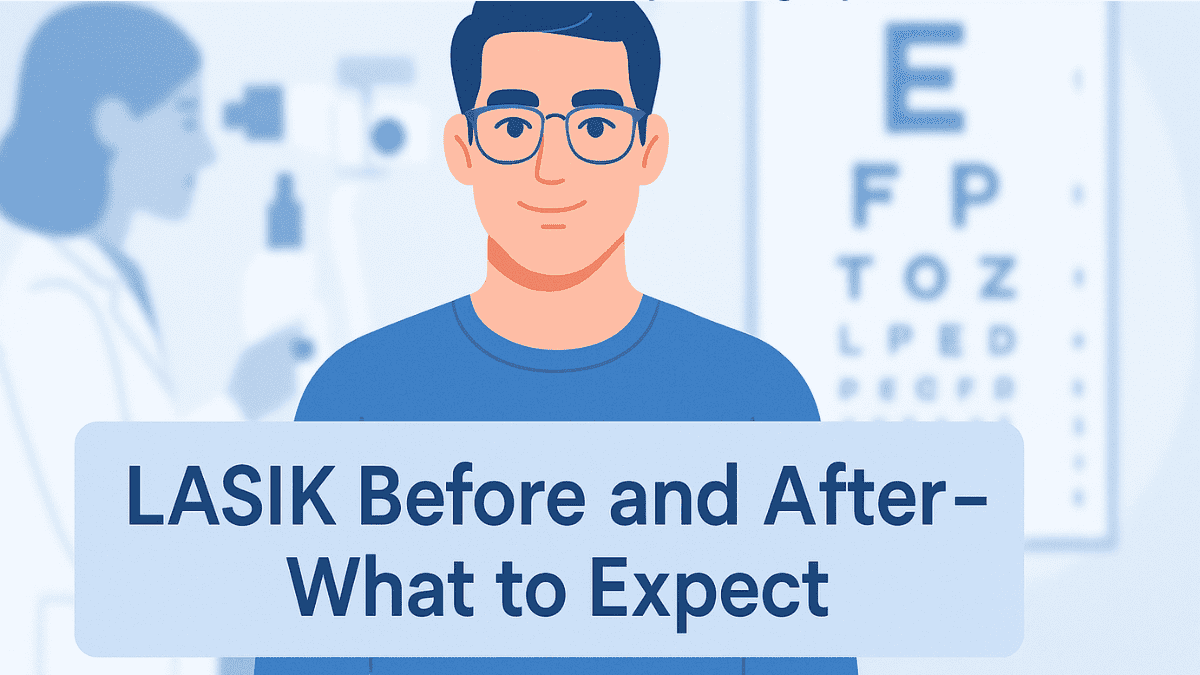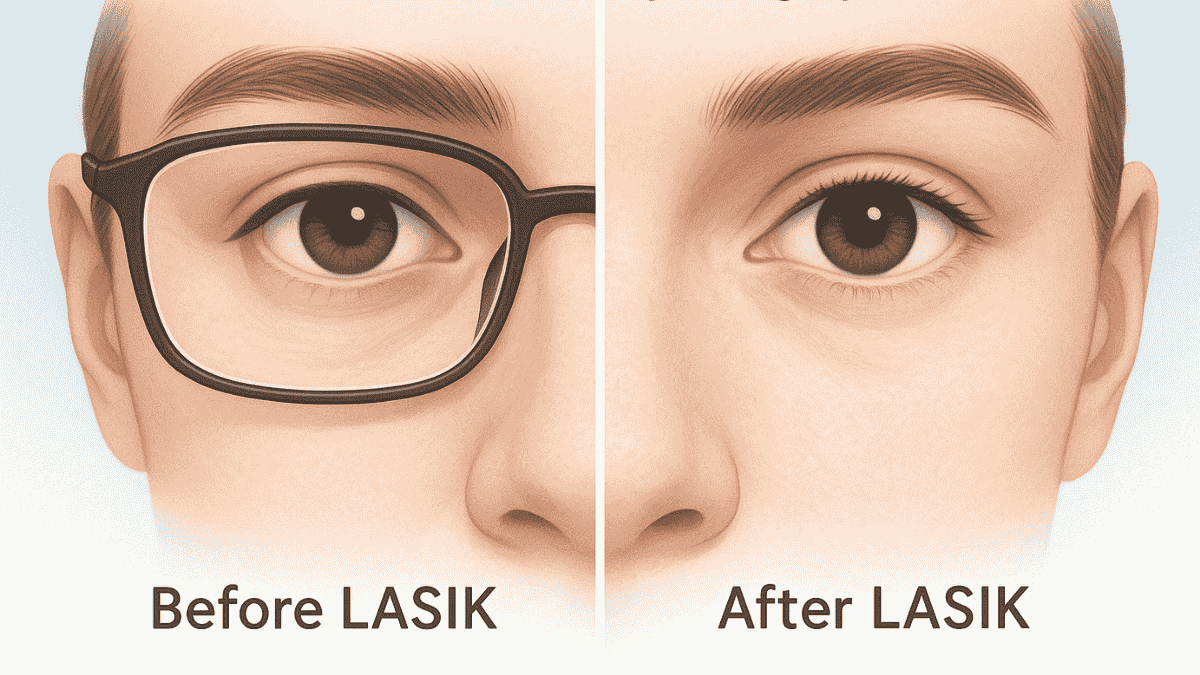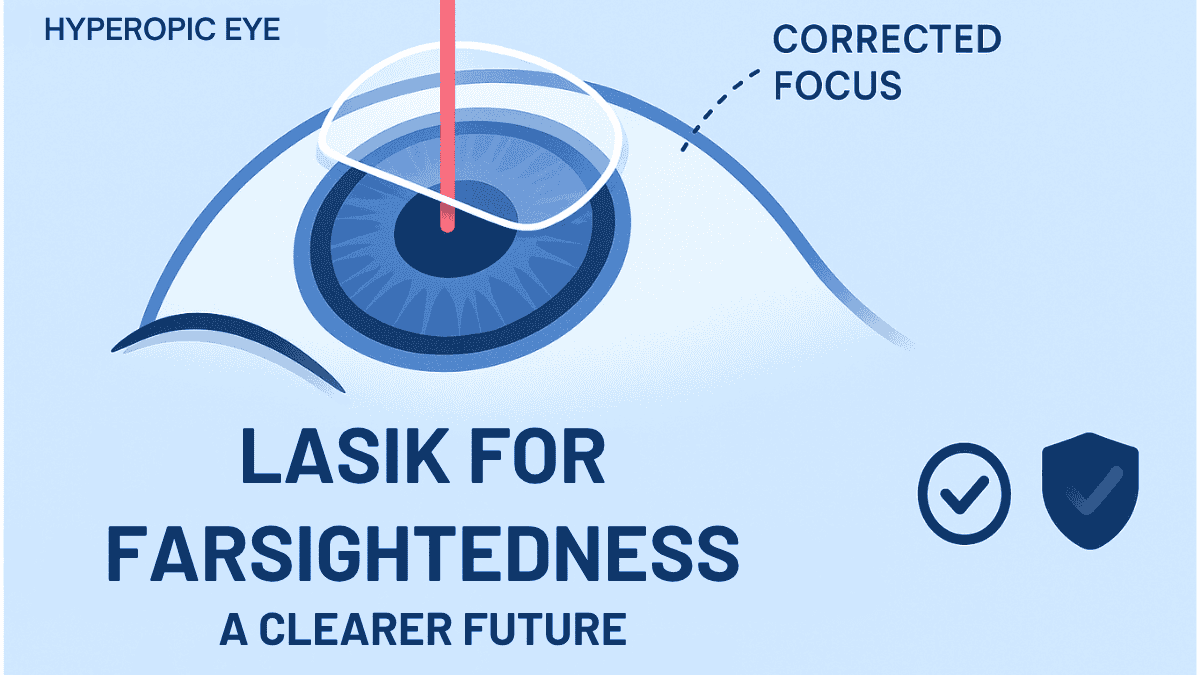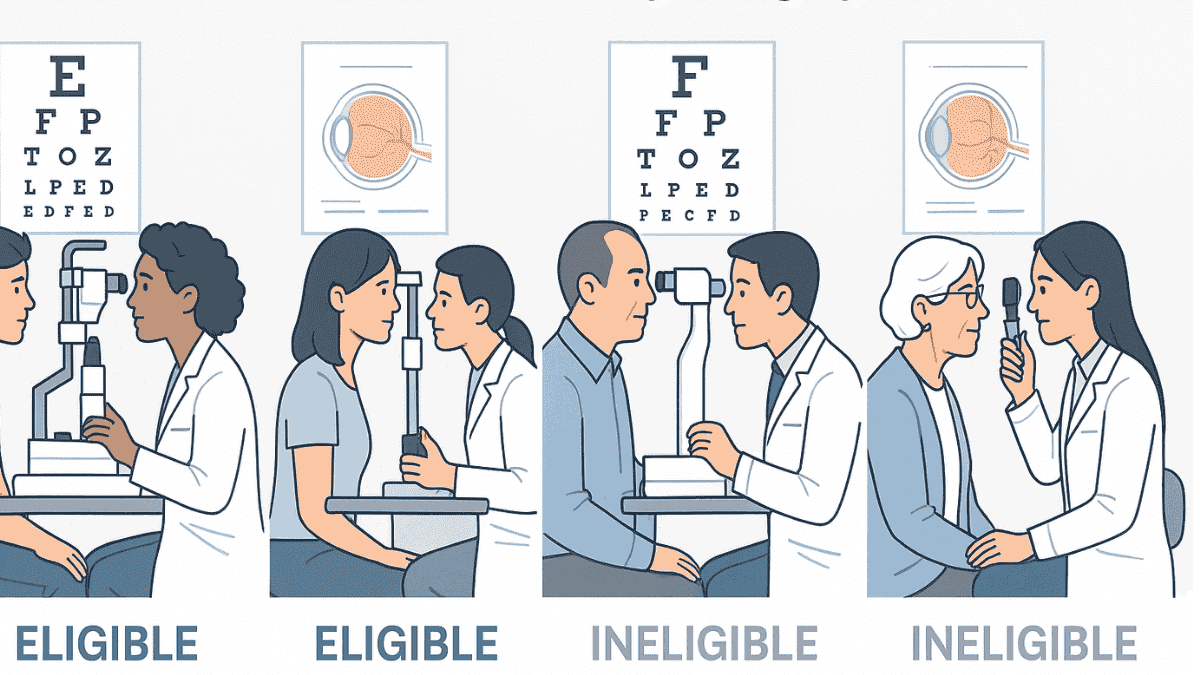
Thinking about finally ditching those glasses or contact lenses? It is a thought many of us have. Laser eye treatment seems like a fantastic option for vision correction. But then a big question pops up: “Am I the right age for it?” You might wonder about the laser treatment for eyes age limit. It is a common concern, whether you feel you might be too young or perhaps too old for this type of refractive eye surgery. This article will explore how age plays a role in laser eye surgery decisions, and also why your chronological age is not the only factor that matters for procedures like LASIK eye surgery.
Table of Contents
Laser Eye Treatment Basics
So, what exactly is laser eye treatment? It is a medical procedure where an ophthalmic surgeon uses a precise laser to reshape the cornea, the clear front surface of your eye. The primary goal of this vision correction surgery is to alter how light rays focus on the retina at the back of your eye. This precise reshaping helps correct refractive errors, leading to clearer vision, often without the need for glasses or contact lenses.
You might have heard of several common types of laser vision correction surgery, including LASIK (Laser-Assisted In Situ Keratomileusis), PRK (Photorefractive Keratectomy), and SMILE (Small Incision Lenticule Extraction). While their methods differ slightly, they all aim to correct common vision issues. These procedures are effective for nearsightedness (myopia), where distant objects appear blurry; farsightedness (hyperopia), where close objects are hard to focus on; and astigmatism, which causes generally blurry vision due to an irregularly shaped cornea. The choice between these laser treatments depends on individual eye characteristics and the surgeon’s recommendation.
The technology behind these laser treatments is quite advanced, allowing for remarkable accuracy. For example, in LASIK surgery, a thin flap is created on the cornea, and the laser then reshapes the underlying corneal tissue. With PRK, the cornea’s outer layer is removed before reshaping, and it regenerates naturally. Understanding these basics helps appreciate the subsequent discussions about age and other qualifying factors for laser surgery age.
Related Article
How Does LASIK Work? A Step-by-Step ExplanationIs There a Minimum Age for Laser Eye Surgery?
This question is frequently asked by younger individuals eager to improve their vision. Generally, regulatory bodies like the FDA have approved LASIK and similar procedures for individuals aged 18 and older. The primary reason for this minimum surgery age is the necessity for a stable eye prescription. During teenage years and even into the early twenties, a person’s eyes can still be developing, and their refractive error may continue to change.
If laser eye surgery were performed while the eyes are still changing, the corrective effects might not last. The individual could find their vision becoming blurry again as their natural prescription shifts post-surgery. This could lead to dissatisfaction and potentially the need for additional treatments. Therefore, eye doctors and any reputable eye centre will emphasize the importance of prescription stability before considering any refractive eye procedure.
Most surgeons prefer to see evidence that a patient’s glasses or contact lens prescription has remained unchanged for at least one to two years. This period of stability indicates that the eyes have likely reached their mature state, making the outcomes of laser vision correction surgery more predictable and durable. This careful approach helps achieve a successful laser outcome.
Related Article
What to Expect During a LASIK Consultation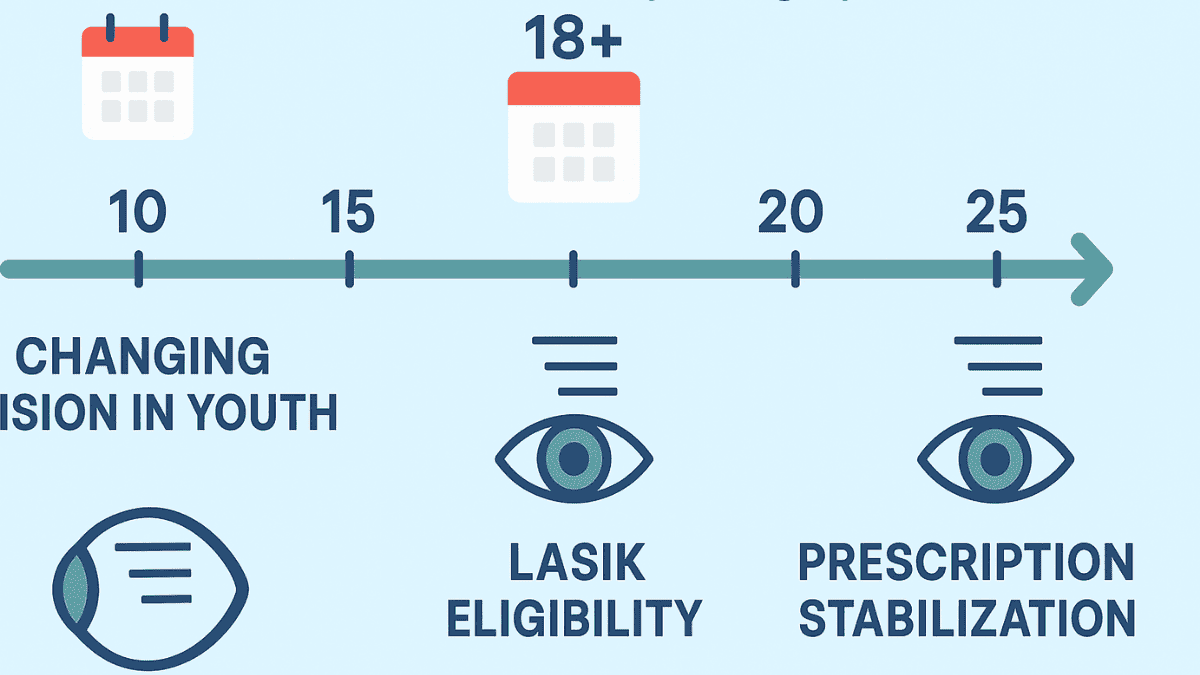
The Importance of a Stable Prescription
What does a “stable prescription” truly signify for laser eye surgery candidacy? It means your need for vision correction, as indicated by your eyeglass or contact lens prescription, has not altered significantly over a sustained period. Most ophthalmic surgeons will look for this stability to be maintained for at least one year, and preferably two years, prior to any laser surgery. This stability demonstrates that the progressive changes in your eyes’ refractive error, common during youth, have likely ceased.
Performing vision correction surgery on eyes with an actively changing prescription is generally not recommended. If your natural vision is still worsening (e.g., increasing myopia), the benefits of the laser correction might initially seem positive. However, as your underlying vision issues continue to evolve, you would probably notice a decline in visual acuity, potentially necessitating further surgical intervention or a return to corrective lenses much sooner than anticipated. The eyes change throughout life, but rapid changes are common in younger years.
An experienced eye doctor at an eye institute will determine if your prescription is suitably stable. This involves reviewing your ocular history and conducting thorough eye examinations. This verification of stability is a critical step in assessing if you are a good candidate for the procedure, directly impacting the long-term success of your refractive eye surgery.
Related Article
What Is Astigmatism? Causes, Symptoms, and Treatments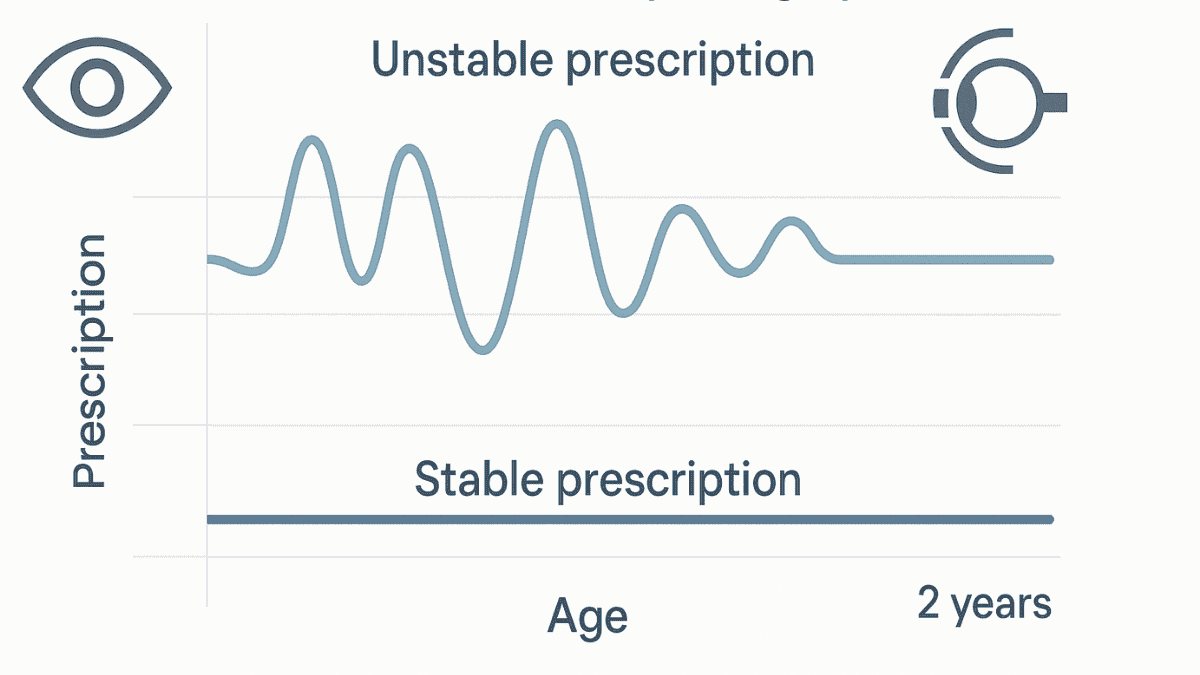
What About Younger Patients (Under 18)?
For individuals under the age of 18, laser eye surgery is almost universally not recommended for standard vision correction purposes. The foremost reason, as previously discussed, is the high likelihood that their vision is still undergoing changes. It is about allowing the eyes to reach full maturity so that any corrective procedure can offer a lasting solution. Patience during these formative years is important for future eye health.
Are there absolutely any exceptions to this rule for the laser eye surgery age limit? In exceedingly rare circumstances, a specific type of laser procedure might be considered for a younger person due to compelling medical reasons, such as severe vision impairment that cannot be corrected otherwise and significantly impacts development. However, these are not for routine refractive errors like needing glasses for school. Such decisions are made by pediatric eye specialists after careful evaluation.
For the vast majority of teenagers, the best course of action is to wait until their eye doctor confirms that their vision has stabilized. This stabilization point often occurs in the early to mid-twenties for many people. Waiting until this milestone significantly improves the chances of achieving a successful and enduring outcome from laser vision correction surgery, like approved LASIK.
Laser Treatment for Eyes Age Limit: The Upper End
Now, let’s shift our focus to the other end of the age spectrum regarding laser eye surgery. A common question from those who have relied on glasses or contacts for many years is, “Am I too old for laser eye surgery?” The encouraging news is that there is no strict, universally defined upper age limit for undergoing laser eye treatment. Many older adults can still be good candidates for vision correction.
What becomes more critical than chronological age is the overall health of your eyes. As individuals age, their eyes can become susceptible to various age-related vision issues or conditions that might make laser surgery less appropriate or introduce additional complexities. Thus, the evaluation for older candidates moves from simply asking “how old are you?” to a comprehensive assessment of “how healthy are your eyes?”
A thorough pre-operative eye examination will screen for any prevalent age-related eye conditions. These might include the development of cataracts, the onset of presbyopia (age-related farsightedness), glaucoma, significant dry eye syndrome, or macular degeneration. The presence and severity of such eye diseases play a far more significant role in determining suitability for laser eye surgery than one’s birth date alone.
Related Article
LASIK at Age 50: Is It Still a Good Option?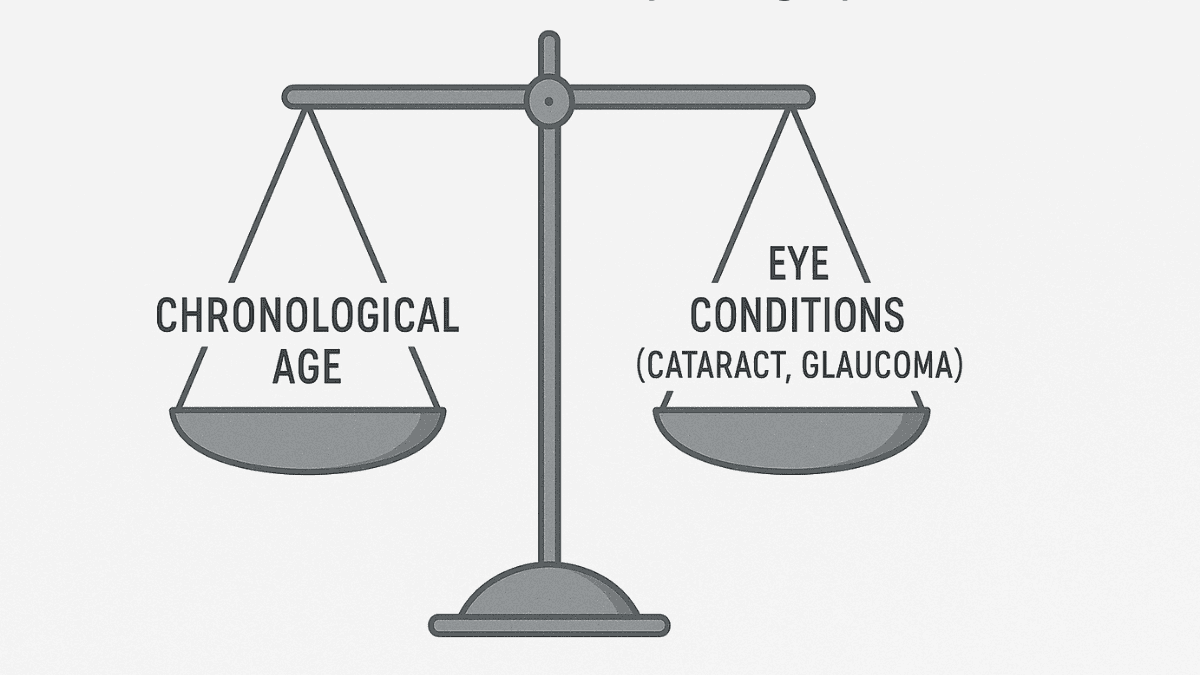
Navigating Age-Related Eye Conditions
As we age, our eyes undergo various changes. Some of these age-related vision changes can affect suitability for laser eye surgery. Understanding these conditions is important when considering vision correction options later in life.
Cataracts and Their Impact on Laser Eye Surgery Decisions
Cataracts are a very common age-related vision issue where the eye’s natural lens becomes cloudy. This cloudiness obstructs light, leading to symptoms like blurry vision, increased glare (especially at night), and faded colors. If you have developed significant cataracts, laser vision correction procedures like LASIK or PRK might not be the most suitable first step for improving your vision. This is because the cataract itself is the primary source of vision impairment.
Often, cataract surgery can effectively correct your vision and reduce dependency on glasses. During this lens surgery, the clouded natural lens is removed and replaced with an artificial intraocular lens (IOL). Modern IOLs are quite advanced; some types, like a multifocal lens or toric lens, can correct not only the cloudiness from the lens cataract but also pre-existing nearsightedness, farsightedness, and astigmatism. You can often find more information about how cataracts affect vision by looking at blog articles from reputable eye care organizations or an eye institute.
Therefore, if cataracts are the main problem, addressing them through cataract treatments is typically the priority. Many people find that after their ophthalmologist recommends cataract surgery and the procedure is done, their distance vision is significantly improved, sometimes eliminating the need for glasses altogether. In some cases, months or years after cataract surgery, a YAG laser procedure (capsulotomy) might be needed to clear up cloudiness on the membrane behind the IOL, which is a quick and painless outpatient treatment. Your eye doctor will discuss the best approach if you have both cataracts and an interest in refractive eye surgery.
Presbyopia: The Challenge of Near Vision After 40
Presbyopia is that common change in vision that usually begins to affect people in their early to mid-40s. It is the condition where focusing on close objects, like reading a menu, a book, or your smartphone, becomes increasingly difficult, often leading to the need for reading glasses. This vision called presbyopia occurs because the natural lens inside your eye gradually loses its flexibility with age, making it harder to adjust focus from distant to near objects.
Standard laser eye surgery, such as LASIK or PRK, is primarily aimed at correcting distance vision problems by reshaping the cornea. It does not directly address the age-related stiffening of the lens that causes presbyopia. Therefore, even if you have successful laser eye surgery for distance vision in your 20s or 30s, you will likely still develop presbyopia and need reading glasses as you enter middle age. Further details on presbyopia can be found through resources like the American Academy of Ophthalmology website, perhaps under their section for patient stories or educational materials.
However, there are strategies involving laser surgery that can help manage presbyopia. One widely used approach is monovision. With monovision, one eye is corrected by the laser eye surgeon to see clearly at a distance, while the other eye is intentionally made slightly nearsighted to provide good near vision. The brain typically learns to adapt, selecting the clearer image from each eye depending on the viewing distance. Some individuals adapt very well to monovision, while others may find it disorienting or experience reduced depth perception. More specialized laser procedures, sometimes referred to as PresbyLASIK, aim to create a multifocal effect on the cornea, but their availability and success rates can vary.
Related Article
LASIK AFTER 40Related Article
Is Laser Eye Surgery Worth It? Exploring the Benefits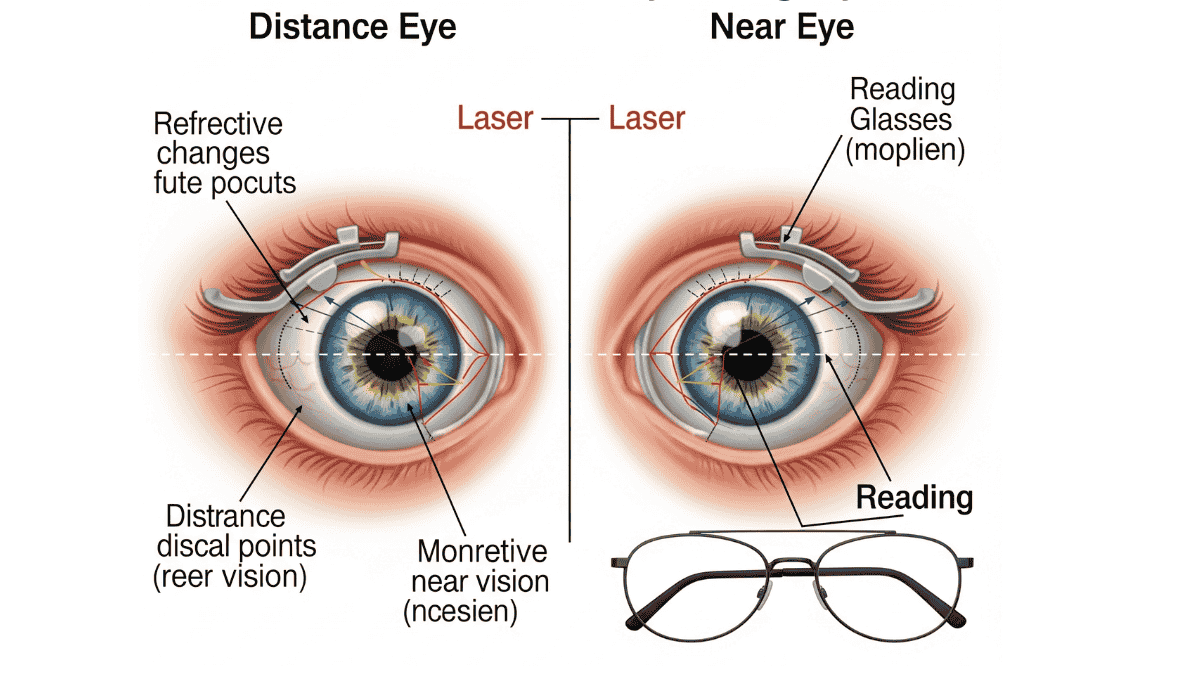
Other Key Age-Related Eye Health Factors
Beyond cataracts and presbyopia, several other eye health considerations become more prevalent with age and can influence candidacy for laser eye surgery. Dry eye syndrome is a notable example. Persistently dry eyes can affect the healing process after laser surgery and, in some cases, may be exacerbated by the procedure. If you suffer from significant dry eyes, your eye doctor will want to manage this condition effectively before considering any form of laser vision correction surgery.
Glaucoma, a group of eye diseases that damage the optic nerve, often due to increased eye pressure, is another important factor. If glaucoma is well-controlled with medication or other treatments, laser eye surgery might still be an option for some individuals, but it requires very careful evaluation by an ophthalmic surgeon. Uncontrolled glaucoma would likely make laser vision correction an unsuitable choice. Regular monitoring of eye pressure is vital for individuals at risk for or diagnosed with glaucoma.
Macular degeneration primarily affects central vision and is a significant age-related vision issue. If active or advanced macular degeneration is present, elective laser surgery aimed at improving general visual acuity is typically not recommended. Similarly, a history of retinal detachment or conditions like diabetic retinopathy, which can affect the retina’s health, must be carefully considered. Diabetic retinopathy, a complication of diabetes, can cause damage to blood vessels in the retina and needs to be stable before any elective eye surgery. A comprehensive pre-operative examination at a specialized eye centre is absolutely essential to screen for these and other eye diseases to confirm that your eyes are healthy enough for the procedure and to ensure a positive outcome.
The “Sweet Spot”: Is There an Ideal Age Range?
People frequently inquire if there is a “sweet spot” or an ideal surgery age for undergoing laser eye surgery. While no single age universally fits everyone, a large number of procedures are performed on individuals in their 20s and 30s. This age bracket often represents a period when, for many, their vision prescriptions have stabilized after the changes of adolescence and early adulthood. Additionally, it is typically before presbyopia becomes a significant concern for near vision.
The stability of your vision is a cornerstone for the long-term success of any laser eye surgery. If you are in your 20s or 30s, and your prescription has remained consistent for at least one to two years, you might fall into a common demographic group for this type of vision correction surgery. However, it is critical to remember that this is merely a general observation based on trends, not a strict rule for laser surgery age.
Individual factors always take precedence over a simple chronological number. Your specific eye health, the degree of your refractive error, corneal anatomy, pupil size, and overall systemic health are the true determinants of suitability. Therefore, do not become overly focused on whether you fit into a perceived “ideal” age bracket. A detailed consultation with an experienced eye doctor will provide personalized information tailored to your unique circumstances.
Factors Beyond Chronological Age Influencing Candidacy
Age is certainly a consideration in the discussion about laser eye surgery age limit, but it is far from the sole determining factor. A multitude of other elements play significant roles in whether an individual is a good candidate for laser eye treatment. Your overall general health status is important; for example, conditions such as uncontrolled diabetes or certain autoimmune diseases can affect the body’s healing capabilities, which could pose concerns for recovery after eye surgery. How your eyes change due to such conditions can also influence outcomes.
The specific physical characteristics of your eyes are also critical. During a pre-operative assessment, your eye doctor will meticulously measure your corneal thickness. The cornea must be sufficiently thick to allow for safe reshaping by the laser without compromising its structural integrity. The overall health of the cornea, ensuring it is free from diseases, dystrophies, or significant scarring, is also vital for a successful laser procedure.
Pupil size, particularly in dim lighting conditions, can be another factor, as larger pupils may sometimes be associated with a higher chance of experiencing night vision disturbances like glare or halos after surgery. Your lifestyle and personal expectations from the surgery are also thoroughly discussed. For instance, an individual requiring exceptionally precise vision for their profession might have different considerations and expectations than someone primarily seeking freedom from glasses for general convenience. This is why a comprehensive pre-operative consultation and examination with an experienced ophthalmic surgeon or at a reputable eye centre is so important; they evaluate all these aspects holistically.
Here’s a summary of key factors beyond age:
| Factor | Why it Matters for Laser Eye Surgery |
|---|---|
| Prescription Stability | Ensures the corrective effects of the surgery are long-lasting and vision issues do not quickly return. |
| Corneal Thickness & Health | Sufficient corneal tissue is needed for safe laser reshaping; the cornea must be free of disease. |
| Pupil Size | Can influence the quality of night vision post-surgery; larger pupils may have higher risk of halos or glare. |
| Overall Eye Health | Absence of significant eye disease like advanced glaucoma, macular degeneration, or severe dry eye syndrome. |
| General Health | Conditions like uncontrolled diabetes or autoimmune disorders can impair healing and affect surgical outcomes. |
| Realistic Expectations | Understanding what the surgery can and cannot achieve, including potential limitations or side effects. |
What if Laser Eye Surgery Isn’t for You? Exploring Alternatives
It can certainly be disheartening to learn that you are not an ideal candidate for laser eye surgery. This determination might be due to your age (either too young with an unstable prescription or older with certain age-related eye conditions), an unsuitable corneal structure, or other health factors. However, it is vital to recognize that this decision is always made with your best ocular interest and long-term eye safety as the highest priority by responsible eye doctors.
The positive news is that laser surgery is not the sole path to achieving clear vision. Modern eyeglasses and contact lenses remain excellent, safe, and highly effective options for correcting a wide range of refractive errors. Today’s contact lenses offer remarkable comfort, breathability, and visual clarity for various prescriptions and lifestyles. Similarly, eyeglasses are available in countless stylish designs and advanced lens technologies that provide superb vision.
In certain situations, especially for individuals who are not good LASIK candidates but still desire freedom from glasses, other surgical procedures might be viable alternatives. An implantable collamer lens (ICL) is one such option. This involves surgically placing a special biocompatible lens, the collamer lens, inside the eye, typically between the iris and the natural lens, to correct vision. An implantable collamer lens can be an excellent choice for those with high myopia or thin corneas. For some older individuals, particularly those with early signs of cataracts or significant presbyopia, Refractive Lens Exchange (RLE) – essentially early cataract surgery where the natural lens is replaced with an advanced IOL – might be recommended. Many an eye institute or eye centre offers consultations to discuss these alternatives. Ultimately, the main goal is to achieve good, functional vision while maintaining the health and integrity of your eyes for years to come. Laser eye surgery is just one of several tools available to eye care professionals to help patients reach that goal.
Related Article
Safe Alternatives to LASIK: PRK, LASEK, and Ortho‑K Explained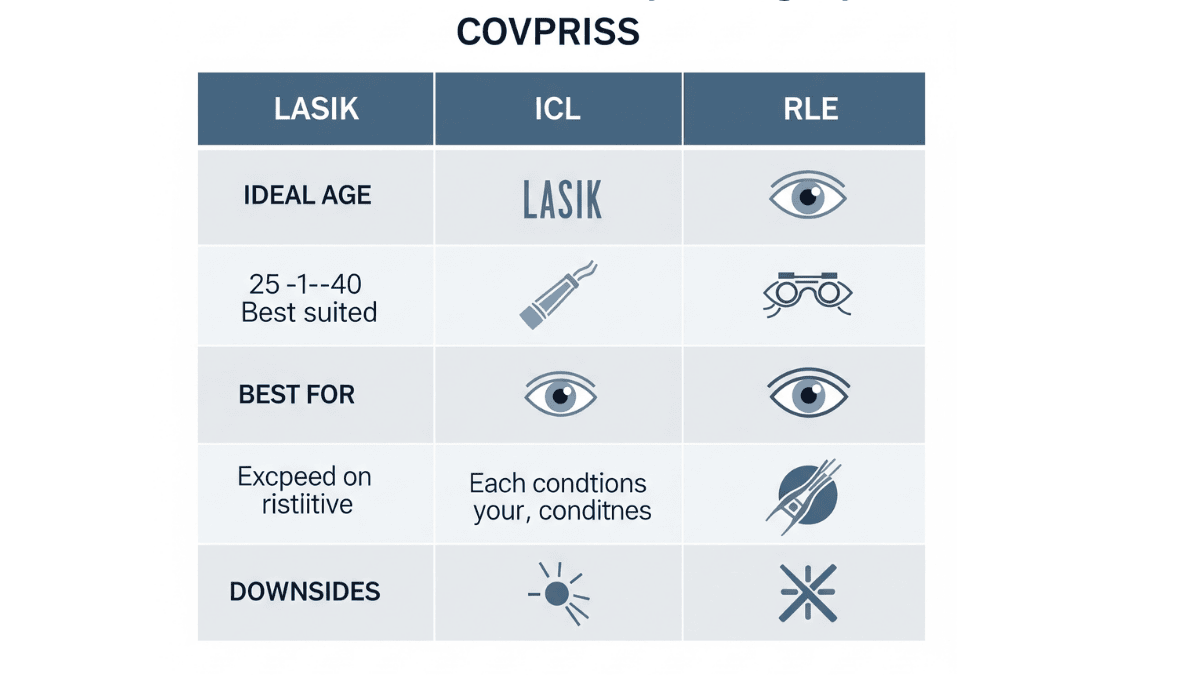
Conclusion
So, when we discuss the laser treatment for eyes age limit, it is clear that it is not defined by a single, rigid number. For younger individuals, the key consideration is waiting until their vision stabilizes, which typically occurs around 18 years of age or older, often extending into the early twenties. This patience allows for more predictable and lasting results from any vision correction surgery. For older individuals, there isn’t a strict upper age cutoff for laser eye surgery age; instead, the focus shifts significantly to the overall health of their eyes and whether age-related vision issues like significant cataracts, unmanageable presbyopia, or severe dry eye might impact the outcome or their suitability for the procedure. You might find helpful patient stories or blog articles on an eye institute’s website if you search for information using terms like “laser eye surgery age limit” or look for quick links to specific conditions.
Factors such as the stability of your refractive error, corneal thickness, pupil size, general health status, and the absence of underlying eye disease play immensely important roles, sometimes more so than your chronological age alone. These elements are crucial for a successful laser procedure. Your eye doctor will assess all these variables to determine if you are a good candidate.
Ultimately, the most reliable way to determine if laser eye surgery is an appropriate choice for you, taking into account your age and all other pertinent factors, is to schedule a detailed consultation and comprehensive examination with a qualified and experienced ophthalmic surgeon. They can thoroughly assess your specific situation regarding the laser treatment for eyes age limit and help you make a well-informed decision about your vision and potential laser treatments. They will also discuss if any other vision issues need addressing before or instead of refractive eye surgery.
FAQ
The minimum age is typically 18, as the eyes must have a stable prescription for at least one year to ensure successful outcomes.
A stable prescription ensures lasting correction. Fluctuating vision could mean your eyes are still changing, which reduces LASIK effectiveness.
There’s no strict age cap, but eye health becomes a key factor after age 60. Many older patients still qualify after proper evaluation.
Yes, if their corneas are healthy and they don’t have conditions like cataracts or macular degeneration, seniors may be good candidates.
No. Teens’ eyes are still developing, and LASIK is only approved for patients 18 or older with a stable prescription.
Yes. Younger patients often recover faster, while older patients may need reading glasses due to presbyopia even after LASIK.
The ideal age is 25 to 40 when vision is stable and presbyopia hasn’t begun. Younger or older patients can still qualify with evaluation.
Conditions like dry eye, glaucoma, or cataracts become more common with age and can affect eligibility more than age itself.
Yes, but you may also need monovision or reading glasses later due to presbyopia. Your eye doctor can recommend the best option.
Yes. Refractive lens exchange (RLE) and implantable lenses (ICL) are common alternatives for older patients not suited to LASIK.



